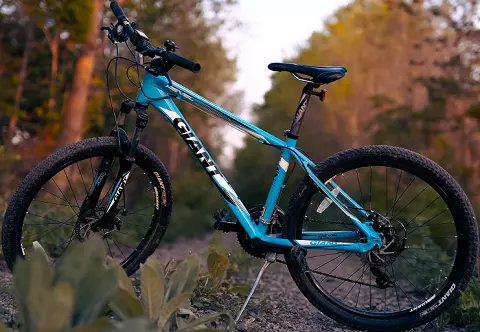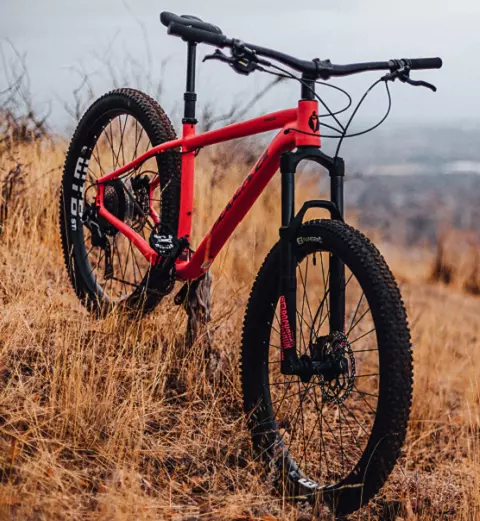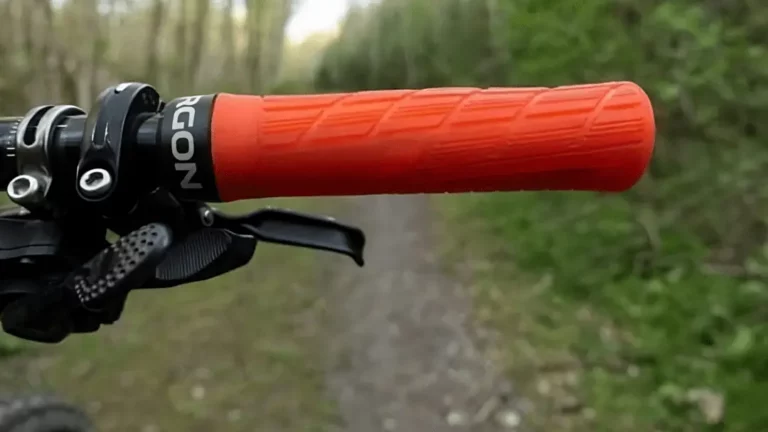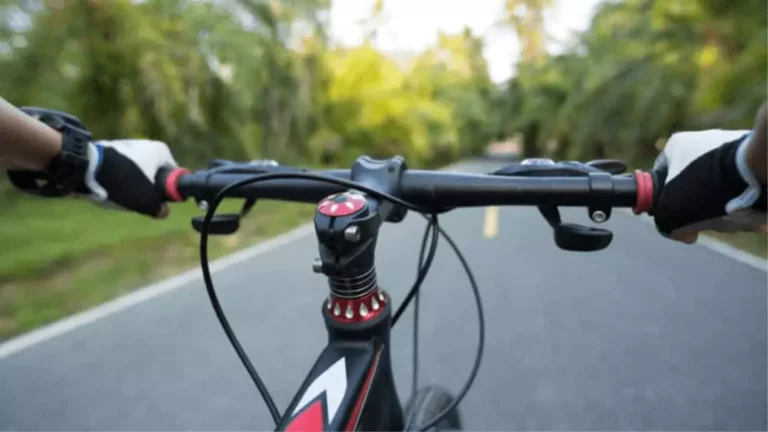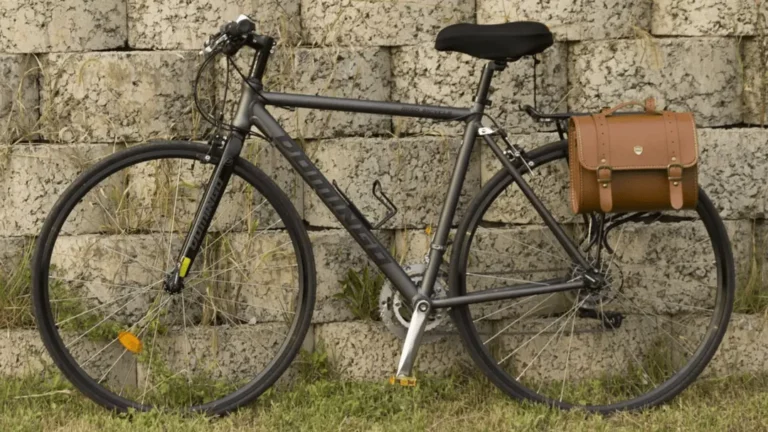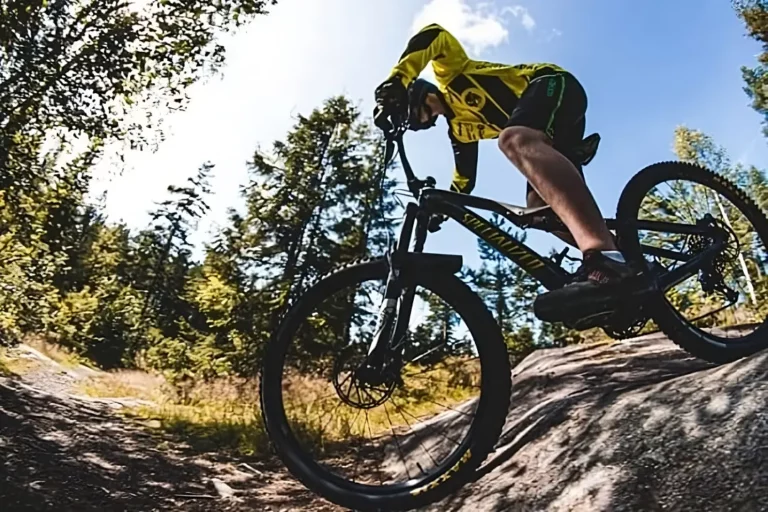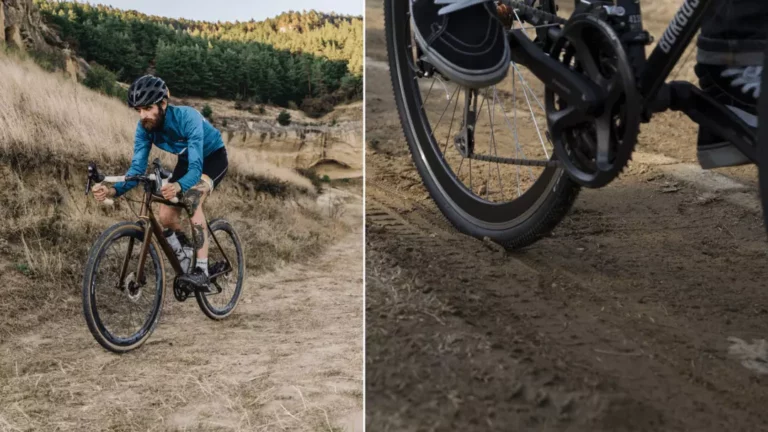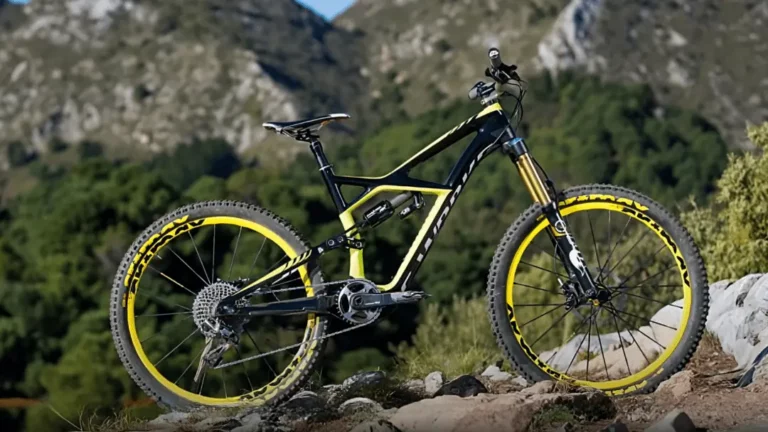Should I Buy A Mountain Bike or Hybrid?
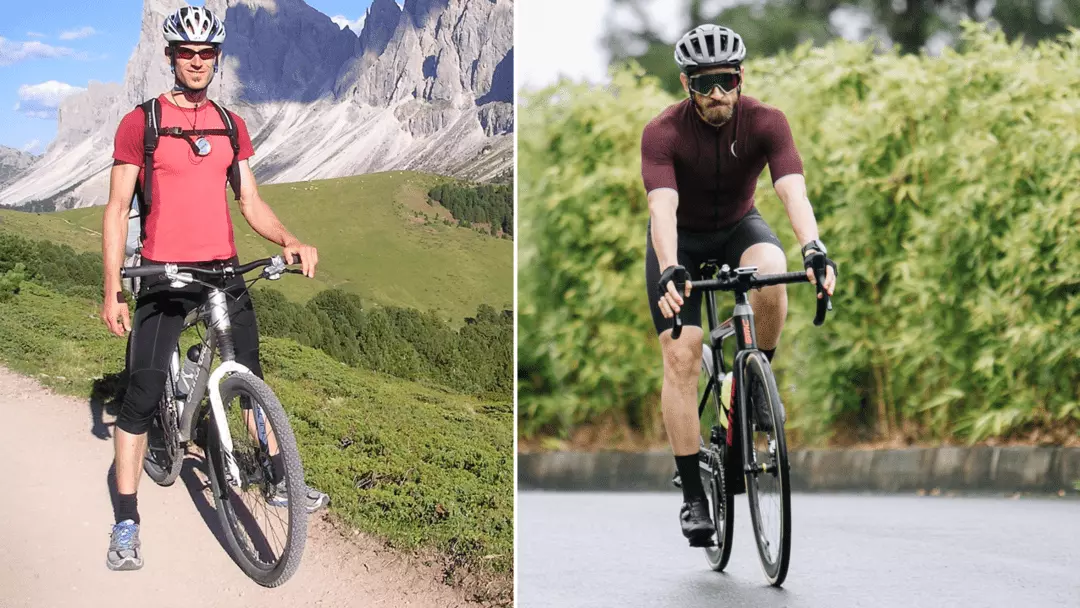
The type of bike you choose is important because the features of a bike are tailored to the ground it’s been designed to ride on. Then you may ask yourself: should I buy a mountain bike or hybrid?
Mountain bikes are characterized by their thick, knobbly tires that are designed with superior traction to tackle uneven terrain, as well as powerful disc brakes that can stop swiftly and effectively.
Higher-end mountain bikes will have suspension at the front and rear for better control over obstacles and uneven ground, and the gearing will be designed to easily tackle varying gradients and steep slopes.
Mountain bikes are usually heavier due to the suspension, but this is essential if you intend to do off-road riding.
On the other hand, hybrid bikes are great for leisure, fitness, or general use. Hybrids are halfway between a road and mountain bike and combine the best features of each.
Hybrids can be great if you ride on roads a lot, but don’t want to limit yourself to the bent-over riding position that most road bikes require.
This means you won’t get the same speed as a road bike, but you’ll have greater comfort levels and will be able to keep track of your surroundings better – which is essential when cycling on busy city roads.
Hybrid bikes will sometimes offer some mountain bike features such as powerful disc brakes and tires that have a good degree of traction on them, which makes them ideal if you want a bike that can be used on a range of different surfaces.
Basically, if you intend to cycle off-road, including on mountainous terrain or steep, muddy hills – a mountain bike is a must. If you’re looking for a bike for general use, go for a hybrid.
Are hybrid bikes faster than mountain bikes?
Mountain bikes aren’t really designed for speed. They usually have heavy, durable frames, and thick tires, and are weighed down by their suspension, and the fastest bikes are always minimalist in their design and are made from aluminum or carbon – hence the aerodynamic design of the top road bikes.
Due to this, mountain bikes are slightly harder to pedal and will be slower on pavements and roads, because, like we say, they’re designed for mountainous terrain and to have a superior grip on rocky or muddy ground.
Hybrid bikes usually offer a lighter frame and won’t have the heavy suspension of a mountain bike, meaning they’re easier to pedal and are generally faster than mountain bikes.
That said, both mountain bikes and hybrids offer an upright riding position and straight handlebars, meaning they don’t boast the aerodynamic design of road bikes.
Though, of the two, a hybrid will definitely have the edge over a mountain bike in terms of speed. If speed is important to you, look for a hybrid with a lightweight frame and thinner tires.
Can you use a hybrid bike for mountain biking?
Like we said previously, if you want a bike for off-road riding, go for a mountain bike, but if you’re looking for a bike you can ride on-road and off-road, a hybrid is a good option.
Just bear in mind that hybrid bikes are not equipped with the off-road features required for serious downhill riding or mountain biking.
A hybrid is somewhere between a road bike and a mountain bike, so it’ll lack the rear suspension, aggressive tread, and study frame of a mountain bike, and your average hybrid won’t be able to tackle too many bumps.
They’ll also be less durable overall, so you don’t want to put your hybrid through too much abuse.
So we’d say overall, you shouldn’t use your hybrid mountain biking as such, but some will be fine for dirt roads.
Hybrids also differ slightly between brands and styles, so you might get one that leans more towards a mountain bike than a road bike.
You can usually tell by the width of the tires and the shape of the treads, as well as the heaviness of the frame and the types of brakes.
Can I ride a hybrid bike on trails?
Hybrids are called hybrids for a reason, and, above all, the whole point of these bikes is to provide a level of flexibility and versatility. If you couldn’t ride off-road at all on a hybrid, there wouldn’t be any point in hybrid bikes.
Therefore, most hybrid bikes will be fine when used on less extreme off-road terrains such as gravel or dirt roads.
Plus, some hybrids are pretty well equipped for off-road riding and may even feature front suspension and disc brakes. It all depends on the hybrid and on the trail you plan on riding on.
On the other hand, many hybrid bikes lack comprehensive suspension systems, and some come with just the front suspension – if any suspension at all.
This of course keeps them lightweight and efficient, which is great for road cycling but makes them more limited off-road.
A hybrid with no suspension won’t be able to absorb bumpy terrain and could get easily damaged, plus thinner tires will struggle to ride over obstacles like stones or sticks.
So a trail that is relatively smooth or flat will be fine for your hybrid, but if the trail you plan on riding has a lot of bumps, you should perhaps consider taking the leap and purchasing a mountain bike that is fully equipped with off-road suspension, a sturdy frame, and powerful brakes.
Final Say: Should I Buy A Mountain Bike Or Hybrid?
Mountain bikes are great for off-road cyclists who want to tackle hills, rough terrain, and winding trails, but they’re heavier to ride due to their suspension systems.
On the other hand, hybrids are designed to offer elements of both mountain and road bikes, which means they’re often lighter than mountain bikes with limited or no suspension. They’re usually equipped to be ridden on some off-road trails but they’re not ideal for full-on mountain biking.
Both bikes have their advantages and disadvantages, so it really depends on where you intend to do the majority of your riding.

Steve Beck is a passionate cyclist and experienced writer covering the cycling industry for over a decade. He has a wealth of knowledge and expertise in all bike-related things, from the latest products and technologies to the best routes and trails. His articles are well-researched, informative, and engaging, and he has a talent for explaining complex cycling concepts in a way that is easy to understand. Steve can be found on the road when he’s not writing about bikes, putting his knowledge and skills to the test.

